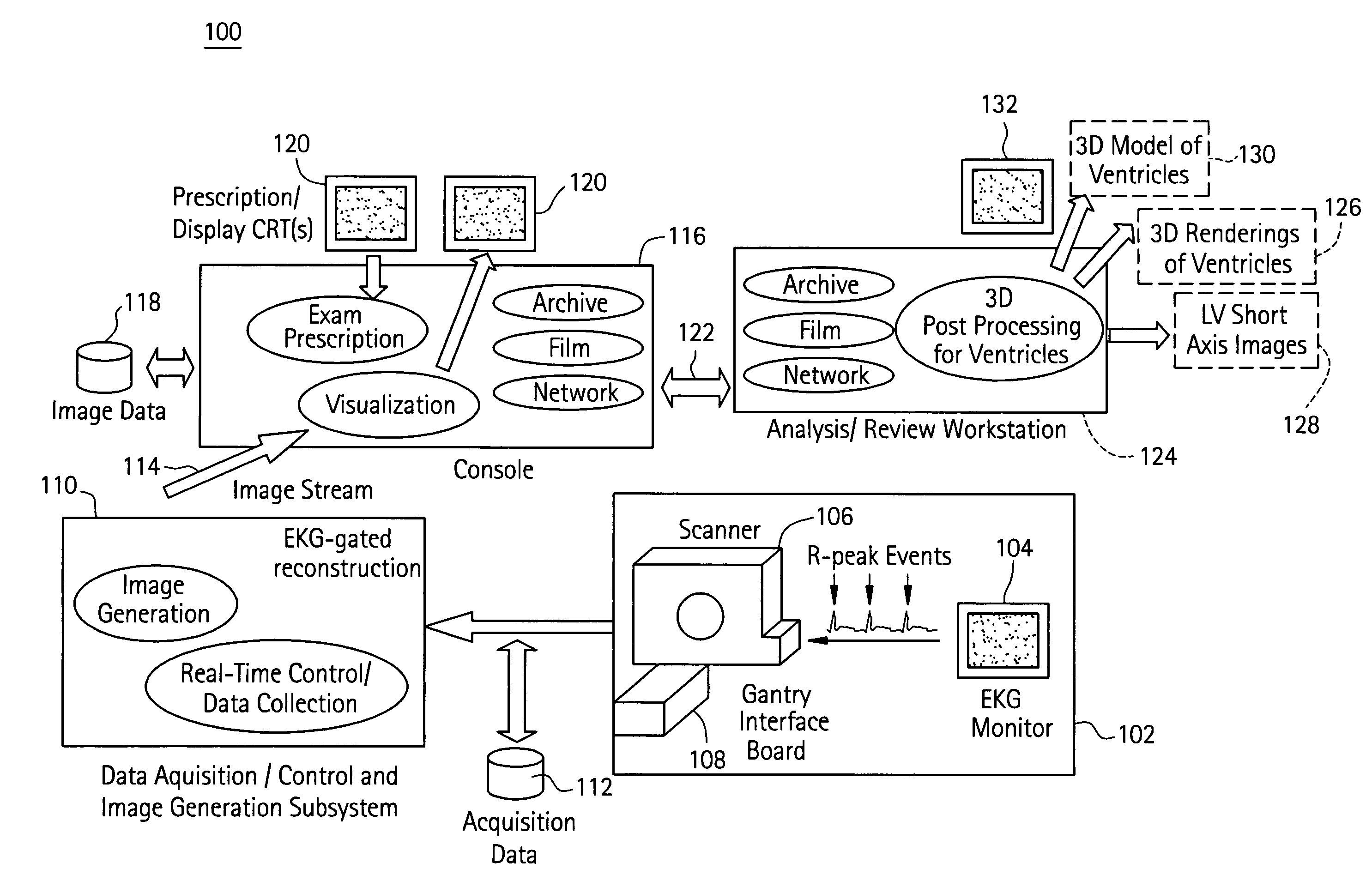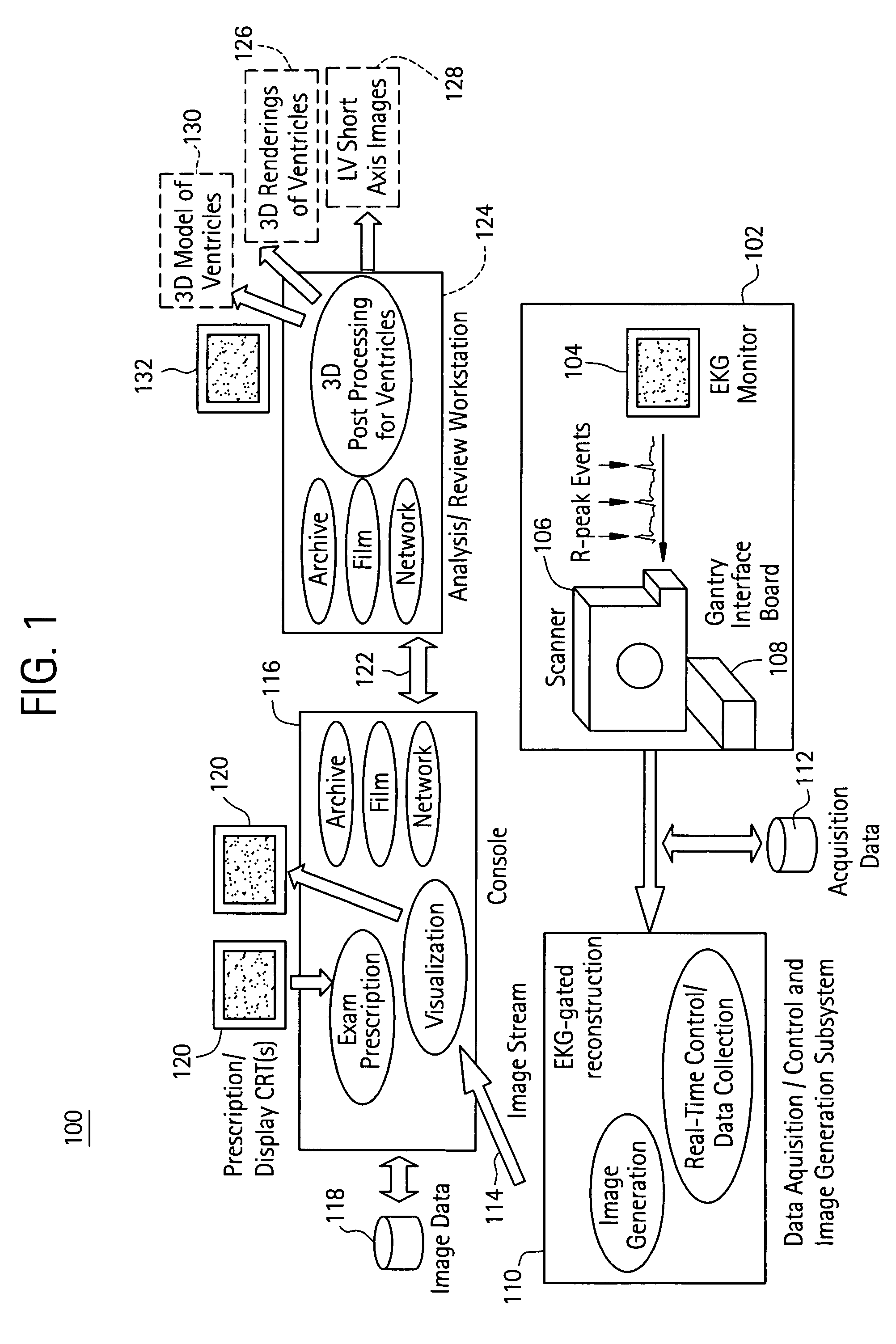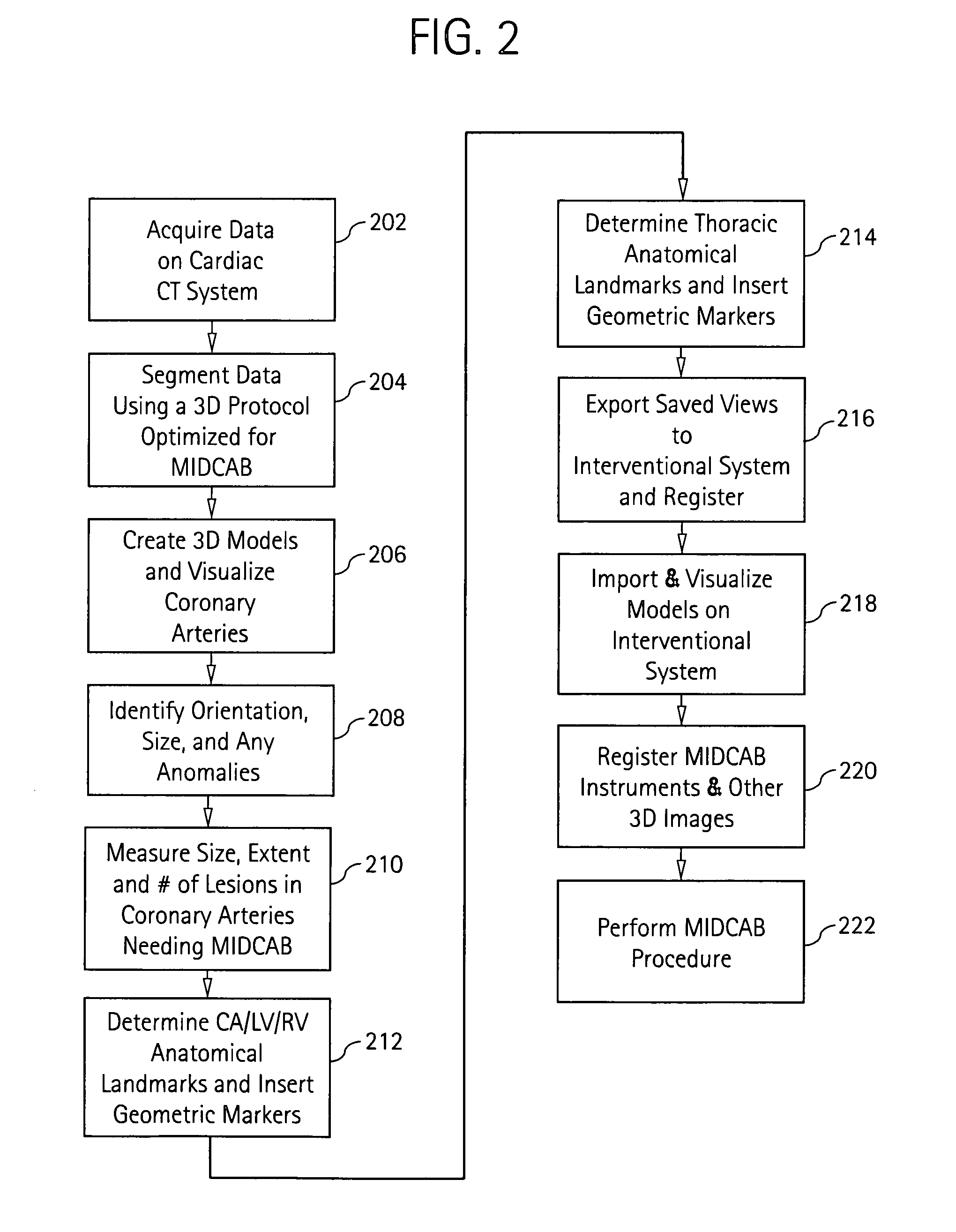Cardiac imaging system and method for planning minimally invasive direct coronary artery bypass surgery
a technology of direct coronary artery bypass and imaging system, which is applied in the field of cardiac surgery bypass systems, can solve the problems of only a limited number of procedures, 8 percent of patients may develop kidney dysfunction, and only 10 percent of procedures
- Summary
- Abstract
- Description
- Claims
- Application Information
AI Technical Summary
Benefits of technology
Problems solved by technology
Method used
Image
Examples
Embodiment Construction
[0016]Disclosed herein is a cardiac imaging system and method for planning minimally invasive direct coronary artery bypass surgery (MIDCAB), so as to enable a practitioner (e.g., electrophysiologist, cardiologist, surgeon) to plan in advance the approach to take for the procedure. With more detailed 3D and navigator (interior) views, a geometric representation of the coronary arteries and the left ventricle (LV) is obtained with an imaging modality such as CT, magnetic resonance imaging or ultrasound. The practitioner can then identify the orientation, size, anomalies, and extent of blockage in the coronary arteries to be targeted for MIDCAB. Using this information, a more exact approach can be taken for the MIDCAB, with incisions made at the most appropriate sites, allowing for more areas to be targeted and, at the same time, allowing for smaller incisions.
[0017]Although the exemplary embodiments illustrated hereinafter are described in the context of a computed tomography (CT) im...
PUM
 Login to View More
Login to View More Abstract
Description
Claims
Application Information
 Login to View More
Login to View More - R&D
- Intellectual Property
- Life Sciences
- Materials
- Tech Scout
- Unparalleled Data Quality
- Higher Quality Content
- 60% Fewer Hallucinations
Browse by: Latest US Patents, China's latest patents, Technical Efficacy Thesaurus, Application Domain, Technology Topic, Popular Technical Reports.
© 2025 PatSnap. All rights reserved.Legal|Privacy policy|Modern Slavery Act Transparency Statement|Sitemap|About US| Contact US: help@patsnap.com



